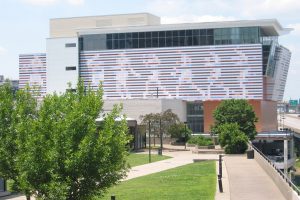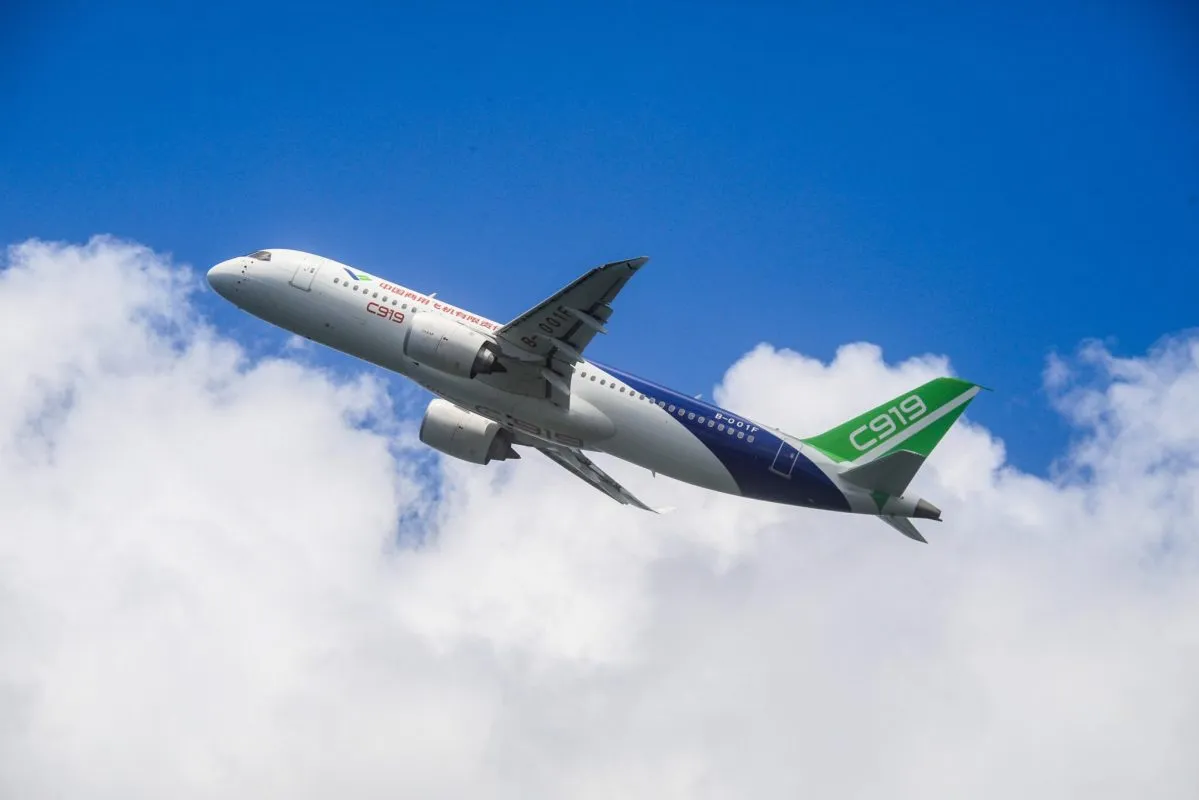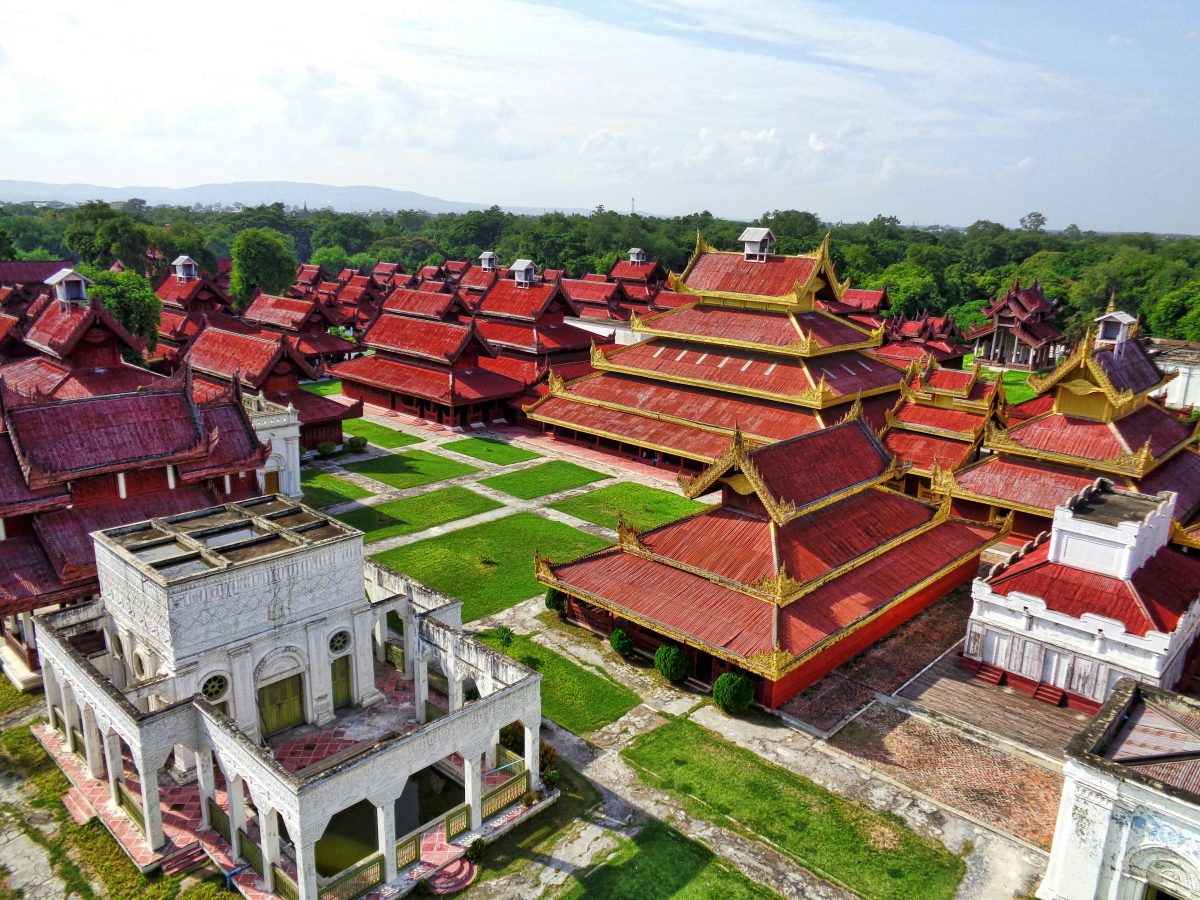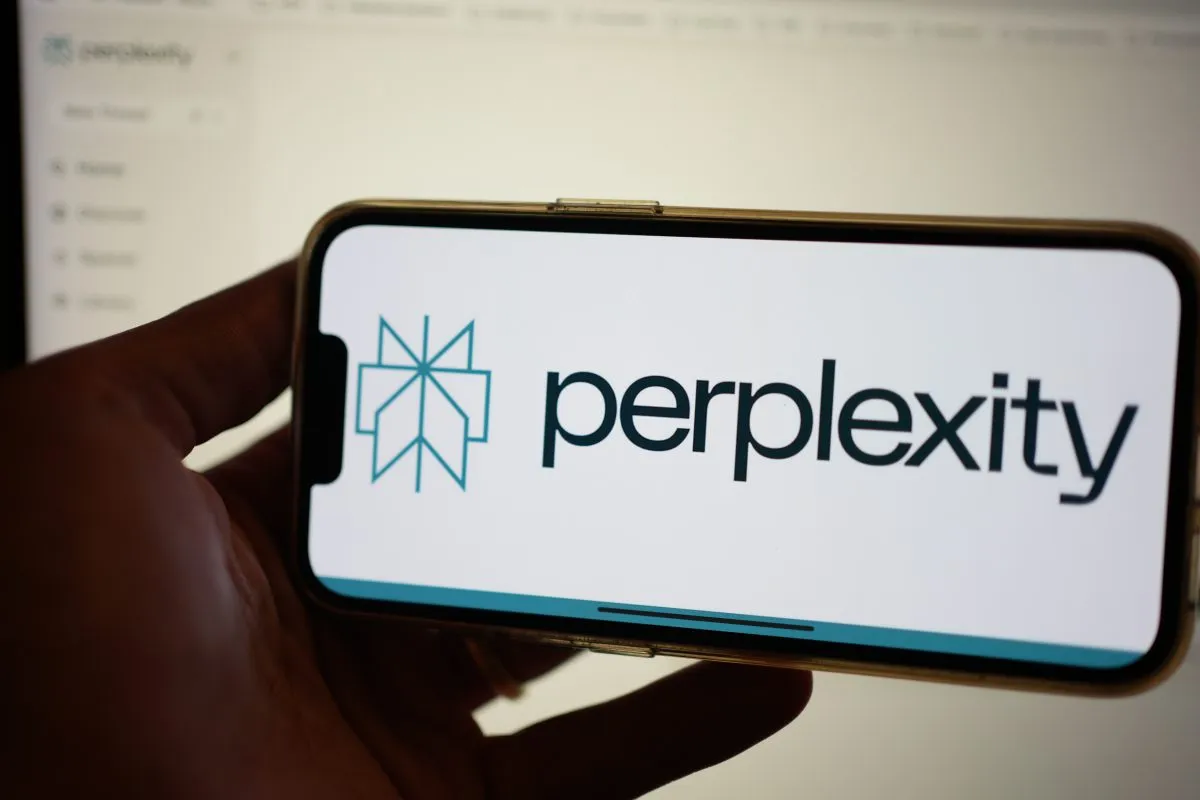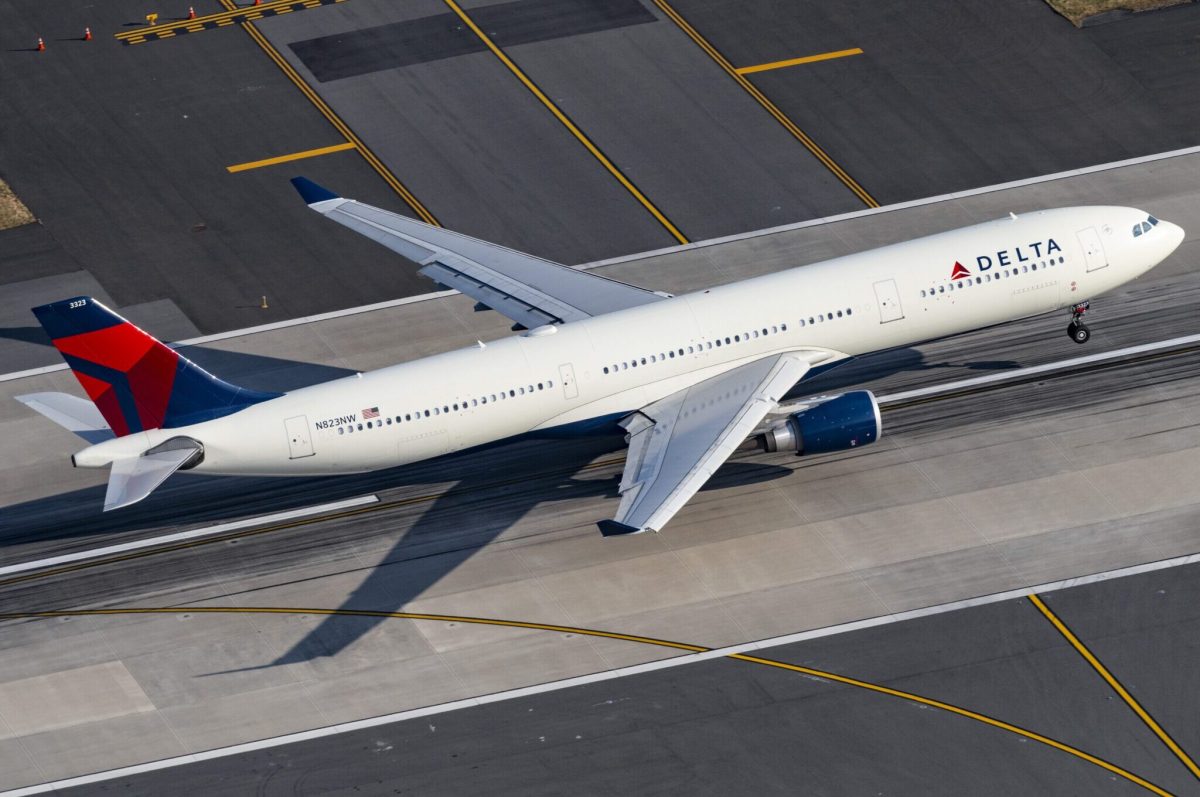This Tour Guide Keeps Muhammad Ali's Legacy Alive by Sharing His Lessons of Racial Justice
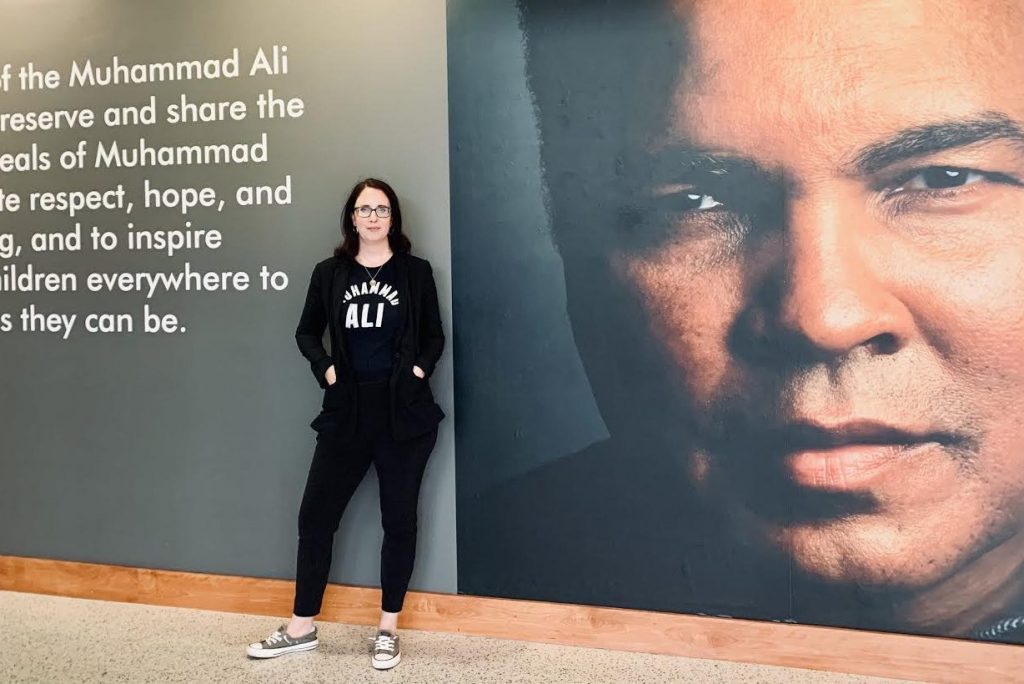
Skift Take
Even before she was born, Erin Herbert's professional fate seemed to be tied to one day working for the greatest boxer the world has seen in this lifetime. As Herbert retells it, her mother and young brothers were walking on the streets of New York one day when they met the man who famously said he could "float like a butterfly, sting like a bee." Muhammad Ali not only met them, but shadowboxed with her brothers too, an example of the simplicity of this complex and globally renowned man.
It's this memory along with her love for education, social justice, and humanitarian causes that led her to the Ali Center in Louisville, where chose a job over working in academia. As well as her great respect for Ali and the incredibly large and important platform the center in his hometown offers, Herbert said can really bring about change, make a difference in the community that Ali loved so much and allows engagement on a globally powerful platform.
Born in Long Island, New York, and raised in New York, Slidell, Louisiana, and Kentucky, Herbert said trajectory to her dream job to the Ali Center, a museum and educational center honoring the legacy of Muhammad Ali in Louisville, began at home. Her dad shared a birth year with Ali and liked "The Greatest," lived his life grounded in service to others and made the world a slightly better place, Herbert said.
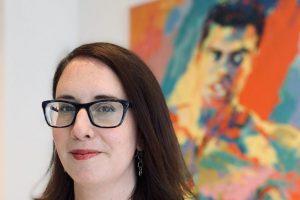
Ali Center tourguide Erin Herbert in front of a painting of Muhammad Ali. Photo courtesy of the Ali Center
Her professional path included stints at Junior Achievement, an organization helping prepare youth to succeed and the World Affairs Council, focusing on education in international affairs, humanitarian causes and working with the U.S. State department's international visitors leadership program or person to person exchange program, she said.
And it was through her work at the World Affairs Council and taking groups to the Ali Center that Herbert first started interacting with the center's staff. In 2011, when she saw a job opening, she applied and was hired. Thus began her decade-long and counting adventure with the Ali Center.
"I've always felt that strange and deep connection to Muhammad in that he is my father's generation. For me, Muhammad is the greatest. And I pinch myself everyday coming to work, (knowing) that I happen to have this incredible platform to create education programs, to promote social justice and promote humanitarianism. I don't ever take that for granted," said Herbert.
Located in the heart of downtown on Sixth Street between Main Street and the Ohio River, the site of the Ali Center was specifically chosen because of Ali's gold medal story and has become the starting point of the tour experience for visitors.
After reopening after being closed for Covid, the center has a smaller staff and fewer visitors, but the mission remains the same as they wait for tourists from all over the world to return. For now, they're focusing on the fifth annual Ali Festival, a 10-day event that kicked off on Thursday through June 13 commemorating Ali's legacy on the fifth anniversary of his passing.
Now 40, Herbert is the director of programming and a tour guide at the Ali Center, where she and her staff have given tours to thousands of tourists descending on the center from all over the world prior to temporarily closing during the pandemic. From small groups of 10 to student groups of 300, celebrities galas and the occasional celebrity in town for a concert or visiting family, Herbert has done and seen it all depending on who the client is and the experience they choose, she said.
Herbert calls what she does at the center a transformational experience. She enjoys talking to folks about Ali and hearing their personal stories of meeting him at the movies, the Department of Motor Vehicles, keeping the Bible he signed for someone's grandparent or how he impacted their lives.
Part of that transformation, she said, is watching the trajectory of people walking in the center's door, sometimes thinking it's going to be a celebration of Ali. Or a boxing museum where they can learn about the "Rumble in the Jungle," or the "Thrilla in Manila" only to have a tour experience they weren't expecting grounded on the principles of what it means to be a human being and seeing their reactions.
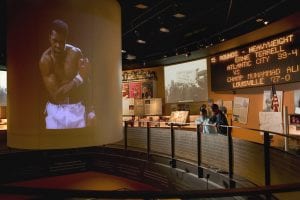
One of the many exhibits at the Ali Center in Louisville, Kentucky. Photo courtesy of the Ali Center
As part of her duties, she goes into the community, has traveled to other communities around the country including Houston, Detroit, Chicago, Jacksonville and internationally, sharing the Ali Center experiences, character education curriculums and Ali's core principles for social and racial justice, Herbert said. She also traveled to Manchester, England, for a sports for social change partnership program working with youth workers on the ground in a community with a large immigrant population grappling with racial injustice and growing violence, Herbert said.
More comfortable behind the camera then in front of it, Herbert comes to life when speaking about Ali, the center, and the work she does there.
As the programming director, she's not only putting together the touring experience, but is also working on educational curriculums that serve as the backbone of the center's outreach, sharing them with partners, community centers, sports centers and educational institutions in the U.S. and internationally, Herbert said.
And although she didn't personally participate, a team of her educators traveled to Kazakhstan on a State Department exchange program to teach Ali's character education and the center brought Kazakhstan boxers on exchange to study his legacy at the center, Herbert said.
The Ali Center hosts the Muhammad Ali Humanitarian award, the center's annual culminating program and fundraiser celebrating emerging humanitarians from around the world who are under 30 and representing Ali's core principles in addition to seasoned humanitarians who are usually celebrities representing humanitarian work and social causes drawing a lot of celebrities wanting a tour of the center, she said.
A few years ago, her all time favorite celebrity, actor Louis Gossett, Jr., a recipient of a humanitarian award and a man she calls a brilliant powerhouse committed to racial and social justice with a great sense of humor, went on a tour of the center with Herbert. Since Gossett, Jr. is the voice bringing Ali's quotes and philosophies to life at the Ali Center spirituality exhibit since its launch, Herbert took him there. Upon hearing his own voice, Gossett looked at his friend and at Herbert surprised, before quipping that he didn't remember doing that, she laughed.
Other celebrities touring the Ali Center have included actress Jasmine Guy who randomly showed up on a Saturday, comedian Hassan Minaj, actor Hill Harper who like Ali was gracious with fans and Coldplay lead singer Chris Martin, Herbert said.
When he was alive, Ali loved spending time at the center and joining in on tours, often surprising visitors to the center who'd flock to him or stare in shock upon finding him in one of the exhibits watching his fights, something he enjoyed doing as much as he did connecting with people, Herbert said.
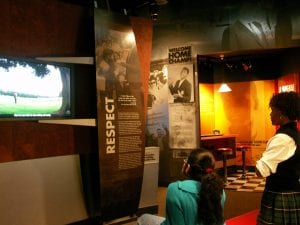
Tourists to the Ali Center visit exhibits sometimes frequented by The Greatest before his passing five years ago. Photo courtesy of the Ali Center
"That was an amazing part and I'm so grateful that that was the first part of my time at the center until he passed in 2016, that he (Muhammad Ali) was actually physically, a part of our experiences and a part of the center. And I still feel really connected to him and his legacy because I had the opportunity to actually know him," Herbert said.
Acknowledging that this has been an extraordinary year, Herbert said in non-Covid years, the center received people from all over the world every week.
"It's an extraordinary thing to think of Louisville, Kentucky being an international destination, but it is and I really think it is because of Muhammad. People come to the center to connect with Muhammad's legacy and celebrate him, he's a universal figure," she said. "Muhammad didn't have security or boundaries and was always connecting with people."
Pre-pandemic over 100,000 people would visit the center annually, but when Ali passed away in 2016, more than 25,000 people descended on the center in one week to pay their respects, Herbert said.
Of the many hats Herbert wears, one of her most loved is the work she does with high school students and youth through the Muhammad Ali Center Council of Students, helping to cultivate the next generation of social justice leaders because, she said, Muhammad was one man, but their work is about how to inspire the next generation to be the greatest as well.
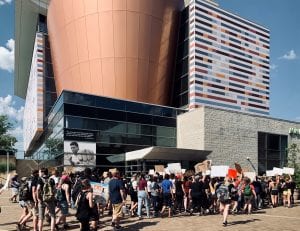
Students including some in the Ali Center student programs marching during a peaceful protest in front of the Ali Center on the anniversary of Ali's passing in 2020. Photo courtesy of Ali Center
And she was especially proud of them when after the deaths of George Floyd and Louisville's own Breonna Taylor, the young people who'd gone through her program were the ones on the forefront in the streets of Louisville and on the bullhorns. They also organized a peaceful youth protest starting at the center on Ali's anniversary last summer, while the center remained closed at the height of the coronavirus pandemic, Herbert said.
Racial justice is a core part of the Ali Center's mission and programming. That includes delving deeply into systemic racism, methods for creating change and an education program called "I Am America," after Ali's famous quote, Herbert said.
The center has conversations around racial justice and policing and created a temporary exhibit in response to the murders of Floyd and Taylor, called "Truth Be Told," said Herbert.
"It's actually something I never feel we are doing enough, we can always do better when you have Muhammad on your shoulders, but what an incredible life I've gotten to live because of this job. And the people I've gotten to meet, the spaces I've gotten to go and the ability to walk into community centers, churches, and schools and to bring Muhammad's legacy into those space is unmatched because he truly does translate around the world to different languages," Herbert said.
The work Ali started that day he threw his gold medal into the river decades ago continues to be a work in progress as the city he loved so much continues experiencing segregation today.
"If you look at rankings, Louisville still remains one of the most segregated cities in the country. We have what we call our Ninth Street divide which if you would draw a line down Ninth Street, you would find not only racial segregation, but all the intersections of social injustice that go along with that from poverty to food deserts to health injustice," Herbert said.
There's a great deal of work remaining in Ali's city and the center continues working toward how they'll continue making good on the promise of the center in their community and how to address these issues, she said.
"Louisville has a long way to go, it is not the Louisville Muhammad wanted it to be and we saw that reflected this past summer with Breonna Taylor and everything else happening in our community," Herbert said. "There is a great need for some direct truth telling, some reckoning for how we got to where we are in our city and real action in how we need to move forward."
To preserve Ali's legacy in the city of his birth, the Louisville tourism office launched a Footsteps of Greatness self-guided tour of Ali's childhood home and other important locations throughout his life.
Additionally, to celebrate the city's rich African American history and Juneteenth (June 19), the end of slavery in the U.S. two years after the signing of the Emancipation Proclamation, the Louisville tourism office is planning a series of events through June19, including the Black Slate Monument, a traveling art monument by Ghanian artist Kwame Akoto-Bamfo open free to the public until June 7 at the Kentucky African American Heritage Museum and on June 8-9 at the Injustice Square Park, before continuing on to other locations in the South and Midwest, the tourism office said.
Roots 101 African American Museum, promoting understanding and inspiring appreciation for the journeys of African Americans will have its grand opening on June 12.
The Un(Known) Project, a collaboration between the artist-led nonprofit, IDEAS x Lab, Root 101, various departments of the Louisville Metro Government and the Frazier History Museum, will take place on June 19. The project includes "public art installation unveiling to support learning, healing, reflection, reconciliation and action by telling the stories of both known and unknown Black men, women and children that were enslaved and hidden figures in Louisville," the city's office of tourism said.
And lastly to celebrate and commemorate Juneteenth, Fourth Street Live! will be holding an all-day street fair showcasing 50 African American vendors, offering Covid-19 vaccines and hosting live musical performances by local and national acts.
